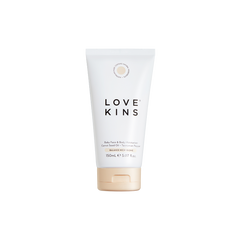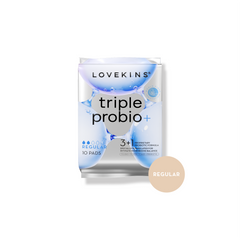Move your body
Mobilising early will help you recover more seamlessly. With the help of your midwife 8-10hrs post surgery get up slowly and continue to walk a little bit everyday. Don’t push it to the point where you get too sore, but move your body a bit each day to get your muscles back into it.
Hold your wound
When you cough, sneeze or laugh, support your wound to minimise your pain. Your stitches won’t ‘pop’, however holding your wound and applying pressure to it when needed can help to support the stitches and wound.

Be Kind to yourself Mama
Spend some time each day acknowledging what an incredible job you have done Mama. Your belly and body carried your little baby for 40 odd weeks. Continue nourishing your skin with Lovekins beautiful pregnancy range. Use our restorative stretch mark oil and our rejuvenating stretch mark cream, on any area of your body you feel needs love and hydration.
Get your rest
A C-Section is a major abdominal surgery- don’t forget that and be easy on yourself! You need a little extra time to repair and recover, reach out for help from friends and family so you can rest. This will help with your mothercraft skills and breastfeeding too!
Monitor for signs of infection
It is important to always keep your wound clean and dry. Wash with plain water, or a saltwater solution and pat dry - don’t rub. If you notice pus, redness, a smell or generally feel unwell, seek advice from your medical professional. Do not use creams and ointments on the wound unless advised.
TIP: Make sure you get well fitting underwear that sits above your wound level, not on top of the wound. Pulling underwear ‘up and over’ will minimise irritation.

Breastfeed on your side
A great position for breastfeeding is laying down on your side, breastfeeding in this position means your baby is not lying directly on your tummy which may feel a bit tender. Feeding on your side also allows you to not have to hold bub with your arms.
Bowel Care
Ensure that your diet is rich in fibre and many nutritious fruits and vegetables. This will help you to pass stools a bit easier which can be daunting in the first few weeks. Seek medical advice to gain a supplementation stool softer - remember to check if it is breastfeeding friendly.
Manage Pain
Follow recommendations from your medical professional. In the first few weeks, maintain pain levels by using basic analgesia such as paracetamol and use heat packs (not directly on your wound) to relieve discomfort.
Debriefing
If your C-Section wasn’t a part of your birth plan, it is important to debrief and look after your mental health. Talking about it may help you, but it is crucial to seek support if you need it. A great mental health resource here:https://www.panda.org.au/













